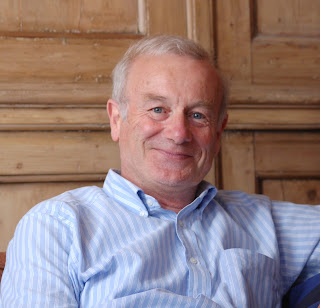Frank Close is a Fellow of the Royal Society, Professor Emeritus of Theoretical Physics at Oxford University and Fellow Emeritus in Physics at Exeter College, Oxford. He is the author of The Infinity Puzzle and most recently Trinity. He was awarded the Kelvin Medal of the Institute of Physics for his 'outstanding contributions to the public understanding of physics' in 1996, an OBE for 'services to research and the public understanding of science' in 2000, and the Royal Society Michael Faraday Prize for communicating science in 2013. His latest book is Elusive: How Peter Higgs Solved the Mystery of Mass.
Why this book?
Back in 2012, around the time of the Higgs boson discovery, I realised I was in a unique position to write about Peter Higgs and his boson. I had interviewed him on stage before the discovery, been with him when he got the call to go to CERN at the time of discovery, and then interviewed him again several times afterwards. I was a spectator as he lived through a seminal piece of scientific history, in which he had been a central player. As he spoke freely about his feelings – about the boson, how public and media reaction had overwhelmed him, and his views about the role of the discovery for the future of science – the idea of recording this dramatic story, from Higgs’s perspective, began to grow.
Initially I planned to write Higgs’s biography. Gradually it became clear that the real story would be that of the boson. The arrival of the pandemic and associated lockdowns made access to him impossible other than by phone, and a full biography became impossible. The title 'Elusive' has many connotations in this saga!
The interviews with Higgs left me with two huge surprises. One was that he described the whole affair as having 'ruined my life'. Why he felt this is explained in Elusive. The other was a matter of physics, which seems not to have been widely noticed. This was that he had not realised that his seminal 1966 paper provided the means for experiment to identify the boson that carries his name! It was only after the discovery, in 2012, that Higgs learned that the experiments had used an equation in that paper from 46 years ago. I found it remarkable that Higgs was in effect disowning any credit for pointing the way to the boson. Readers can assess this for themselves – it’s on pages 102-103.
How does this work change the future of physics?
Not at all, though it might change readers’ perceptions of the 50 years history that led to discovery of the Higgs boson. It also previews where particle physics is now headed.
What’s next?
For my own entertainment I have been writing short essays about 'Seven Lucky Numbers'. These are integers, irrational fractions, e, 𝛑, 0, infinity and i (square root of -1), all working towards understanding the most beautiful and mysterious equation in maths: Euler’s ei𝛑+1=0. I have also begun to research the early decades of nuclear physics with a view to writing a book titled Destroyers of Worlds – Oppenheimer’s famous quote when the atomic bomb was first tested.
What’s exciting me at the moment?
The LHC is now working again at higher energy and intensity than before. I hope we will be able to produce two Higgs bosons at a time and learn how they interact with one another. This will be the first step towards understanding how the bosons condense to make the Higgs field in which we are all immersed, like fishes in water. Currently we know what the Higgs field does, and how much energy it takes to excite Higgs bosons into life, but we have little insight into how the field is formed, whether it has deeper structure, and why the various particles have their specific masses and properties. When we know all this, will it be possible to alter the structure of the Higgs field? And if so, what might that enable? A science fiction story perhaps?
Interview by Brian Clegg - See all of Brian's online articles or subscribe to a weekly digest free here


Comments
Post a Comment